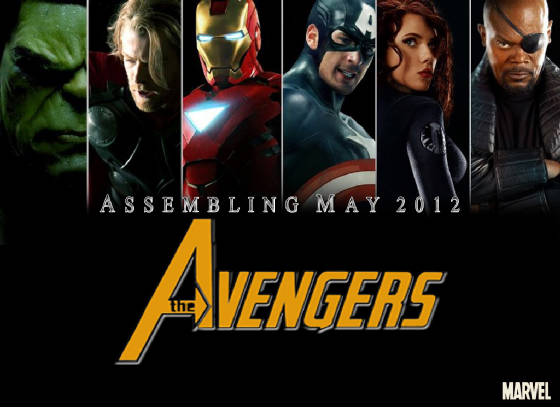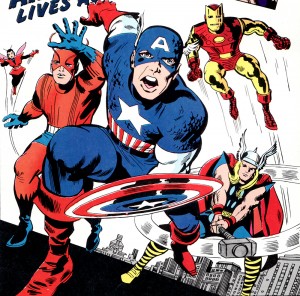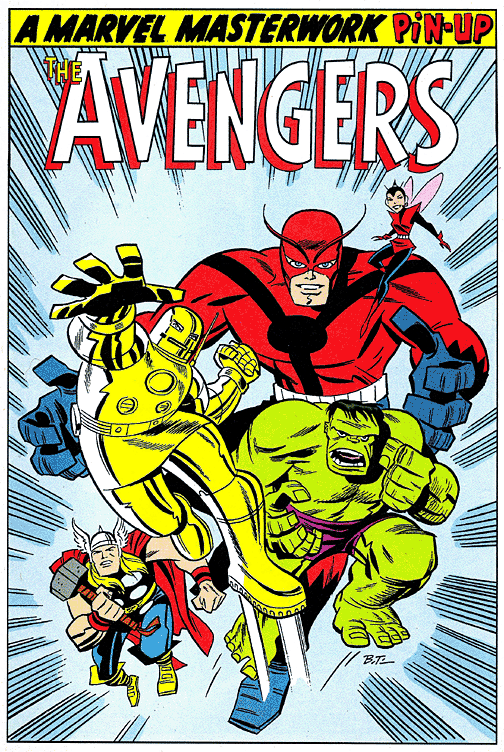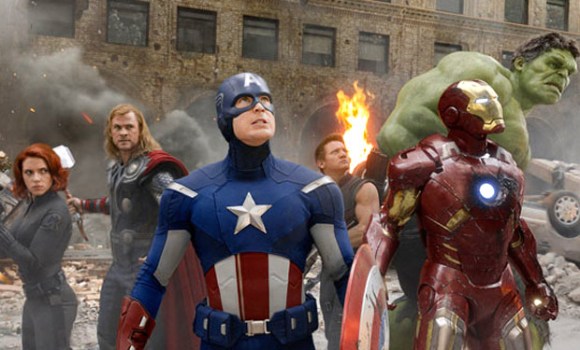Welcome to Comics Are My Religion, a look at theology through the lens of comic books. There are some basic ground rules about engaging in respectful dialog about religion in this column. There be spoilers ahead, so beware!
 The world seems so divided. You cannot view any social media outlets without noticing everyone’s political ideologies spread across the screen in out-of-context photos with some quippy caption beneath it. This sets one person off and the tirades of who’s right and who’s wrong begin, even though neither side has all the information. In my state, Georgia, people are boycotting fast-food restaurant Chick-Fil-A because the CEO expressed anti-gay sentiment. In my Christian denomination, the Episcopal Church, people are leaving because our General Convention passed a resolution supporting rites for same-sex marriage. These things are putting people at one another’s throat. Then, you have a deeply disturbed individual who goes into a movie theater and shoots a crowd of people. People are already blaming bad parenting and entertainment like movies, video games, and comic books on that guy’s actions. All of these instances, and many more than this, are only seeking to divide people.
The world seems so divided. You cannot view any social media outlets without noticing everyone’s political ideologies spread across the screen in out-of-context photos with some quippy caption beneath it. This sets one person off and the tirades of who’s right and who’s wrong begin, even though neither side has all the information. In my state, Georgia, people are boycotting fast-food restaurant Chick-Fil-A because the CEO expressed anti-gay sentiment. In my Christian denomination, the Episcopal Church, people are leaving because our General Convention passed a resolution supporting rites for same-sex marriage. These things are putting people at one another’s throat. Then, you have a deeply disturbed individual who goes into a movie theater and shoots a crowd of people. People are already blaming bad parenting and entertainment like movies, video games, and comic books on that guy’s actions. All of these instances, and many more than this, are only seeking to divide people.
I am not advocating a robotic symmetry in all of creation, where everyone agrees or believes the same thing. No, that type of “unity” is not really unity at all, but a denial of human freedom. There will always be differing opinions and ideas, and it’s that diversity that makes us amazing and wonderful creatures.
 In the first century, the apostle Paul lived in a world of great division. Paul, a faithful Jew who was now developing his faith into something different, but what he thought was the fulfillment of his tradition, went around to spread a message of unity amidst all the division in the world. Even amongst these new “Christians,” there were varying degrees of ideology and philosophy. Not every Christian believed the same thing about who Jesus Christ was or what he came to do.
In the first century, the apostle Paul lived in a world of great division. Paul, a faithful Jew who was now developing his faith into something different, but what he thought was the fulfillment of his tradition, went around to spread a message of unity amidst all the division in the world. Even amongst these new “Christians,” there were varying degrees of ideology and philosophy. Not every Christian believed the same thing about who Jesus Christ was or what he came to do.
Paul wrote a letter to a really divided group of believers in a city called Corinth. Corinth was a major cosmopolitan and widely diverse city. The believers in that tiny church reflected that diversity. There were lifelong Jews who wanted everyone to become Jewish. There were non-Jews (Gentiles) who just wanted to believe in Jesus without becoming Jewish. They all differed in how they approached faith, and how that faith would inspire them to act in the world. They all had different gifts and traits, as well. But when put in a group together, there was bound to be conflict, and lots of it.
Paul writes to them and challenges this division. He creates an image for them in how they should act. That image is one of a body.
For just as the body is one and has many members, and all the members of the body, though many, are one body, so it is with Christ. For in the one Spirit we were all baptized into one body—Jews or Greeks, slaves or free—and we were all made to drink of one Spirit. Indeed, the body does not consist of one member but of many. If the foot were to say, ‘Because I am not a hand, I do not belong to the body’, that would not make it any less a part of the body. And if the ear were to say, ‘Because I am not an eye, I do not belong to the body’, that would not make it any less a part of the body. If the whole body were an eye, where would the hearing be? If the whole body were hearing, where would the sense of smell be? But as it is, God arranged the members in the body, each one of them, as he chose. If all were a single member, where would the body be? As it is, there are many members, yet one body. The eye cannot say to the hand, ‘I have no need of you’, nor again the head to the feet, ‘I have no need of you.’ On the contrary, the members of the body that seem to be weaker are indispensable, and those members of the body that we think less honourable we clothe with greater honour, and our less respectable members are treated with greater respect; whereas our more respectable members do not need this. But God has so arranged the body, giving the greater honour to the inferior member, that there may be no dissension within the body, but the members may have the same care for one another. If one member suffers, all suffer together with it; if one member is honoured, all rejoice together with it. Now you are the body of Christ and individually members of it. 1 Corinthians 12:12-27
Paul paints this beautiful picture of unity amongst diversity. In effect, he is suggesting an assembling of people, acting in unity despite apparent differences.
 It’s this very idea that also led Stan Lee to develop one of the most popular superhero groups of all time. Seeing super groups like the Justice Society of America and the Justice League of America, where heroes all seemed to like one another and get along while battling villains, Lee wondered what would happen if you got heroes together who didn’t get along with each other. What if you put some of the most diverse heroes together and made them try to work together?
It’s this very idea that also led Stan Lee to develop one of the most popular superhero groups of all time. Seeing super groups like the Justice Society of America and the Justice League of America, where heroes all seemed to like one another and get along while battling villains, Lee wondered what would happen if you got heroes together who didn’t get along with each other. What if you put some of the most diverse heroes together and made them try to work together?
And there came a day, a day unlike any other, when Earth’s mightiest heroes and heroines found themselves united against a common threat. On that day, the Avengers were born — to fight the foes no single super hero could withstand! Heed the call, then — for now, the Avengers Assemble!
From the beginning, the Avengers were a symbol of that one body. Iron Man – a wealthy weapons-dealer who thought he could do things himself. Thor – a god whose strength and ability were unparalleled amongst mortals. Hulk – a monster who looked like no hero. Joined by Wasp and Ant-Man, the classic unhealthy couple, these first five Avengers fought each other as much as any villain. In fact, Hulk quit the team early on, and to this day has never really been an active member in the comics. Even when Captain America showed up in issue #4, the team was no more cohesive.
Many people now have seen Marvel’s The Avengers film. Writers Joss Whedon and Zak Penn do an amazing job of retelling this story and capitalizing on the diversity represented in these heroes. Robert Downey Jr.’s Iron Man is as self-centered as you can get. Chris Evans’s Captain America is a man-out-of-time who can’t find his place. Mark Ruffalo’s Bruce Banner is trying not to be the monster he knows he can be. Chris Hemsworth’s Thor is powerful, yet can’t come to a solution through this power. Scarlett Johannson’s Black Widow and Jeremey Renner’s Hawkeye are both seeking redemption. Samuel L. Jackson’s Nick Fury has to deal with poor choices he’s made. These characters are as different and divided as you can get. They all come from different backgrounds and all bring something different to the table. Yet, when faced with a common enemy, they must use those things which make them different, push aside their own egos and pride, and join together.
They have to assemble. They have to become one body.
 In the movie, besides dealing with the villainous Loki and the alien Chitauri, something else pulls them together. Agent Coulson, who has been active in all these characters’ respective movies and has been one of the people responsible for the “assembling,” dies. This tragedy unites the Avengers and sends them off to do what they need to do. It’s unfortunate that tragedy sometimes is the only thing that will bring people together. It happened to the early followers of Christ who witnessed his death. It happened to later Christians who suffered persecution. It happened to Americans on 9/11.
In the movie, besides dealing with the villainous Loki and the alien Chitauri, something else pulls them together. Agent Coulson, who has been active in all these characters’ respective movies and has been one of the people responsible for the “assembling,” dies. This tragedy unites the Avengers and sends them off to do what they need to do. It’s unfortunate that tragedy sometimes is the only thing that will bring people together. It happened to the early followers of Christ who witnessed his death. It happened to later Christians who suffered persecution. It happened to Americans on 9/11.
Can we as human beings assemble without such tragedy? Can we find common ground to inspire us to work together against the division of the world? Can we push aside the petty arguments and differences enough to join together in rebellion against those forces which seek to separate us? Or will someone have to die in order for us to understand?
I’d rather just be like an Avenger. I’d rather assemble together with those who differ from me and respect them for the part they play in the machine of life. I’d rather put aside my desire to be “right” and join with those who may be opposite of me in every way, yet are willing to engage in a common task of bringing peace and unity to the world.
That day unlike any other, where heroes and heroines are called to unite against a common threat, is here. Will you heed the call?
Avengers…assemble!
Jeff Jackson
jeff@comicattack.net

Outstanding article, Jeff. This could be a great sermon.
Well done.
It actually was my sermon today. 🙂 With a few changes here and there.
Awesome. Had a feeling that could be the case.
If you lived in my area, Jeff, I’d probably go to church.
Had to read this one again. Damn good!